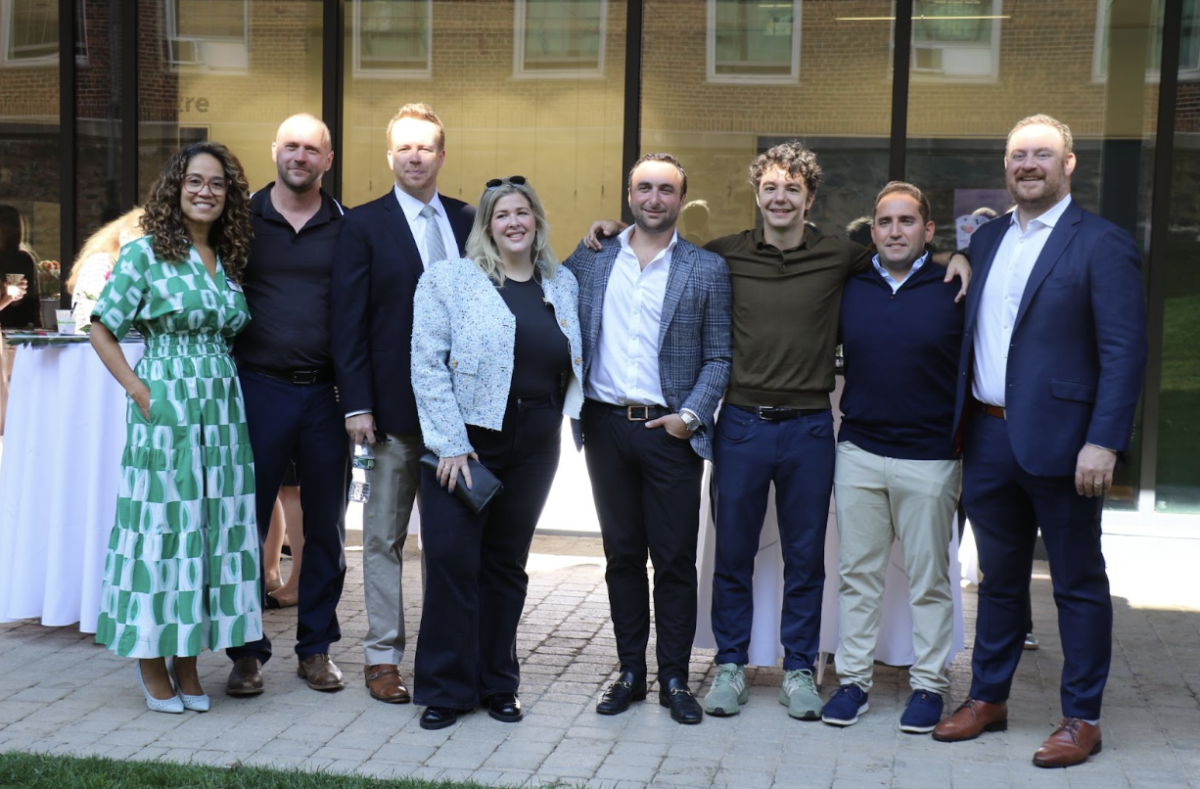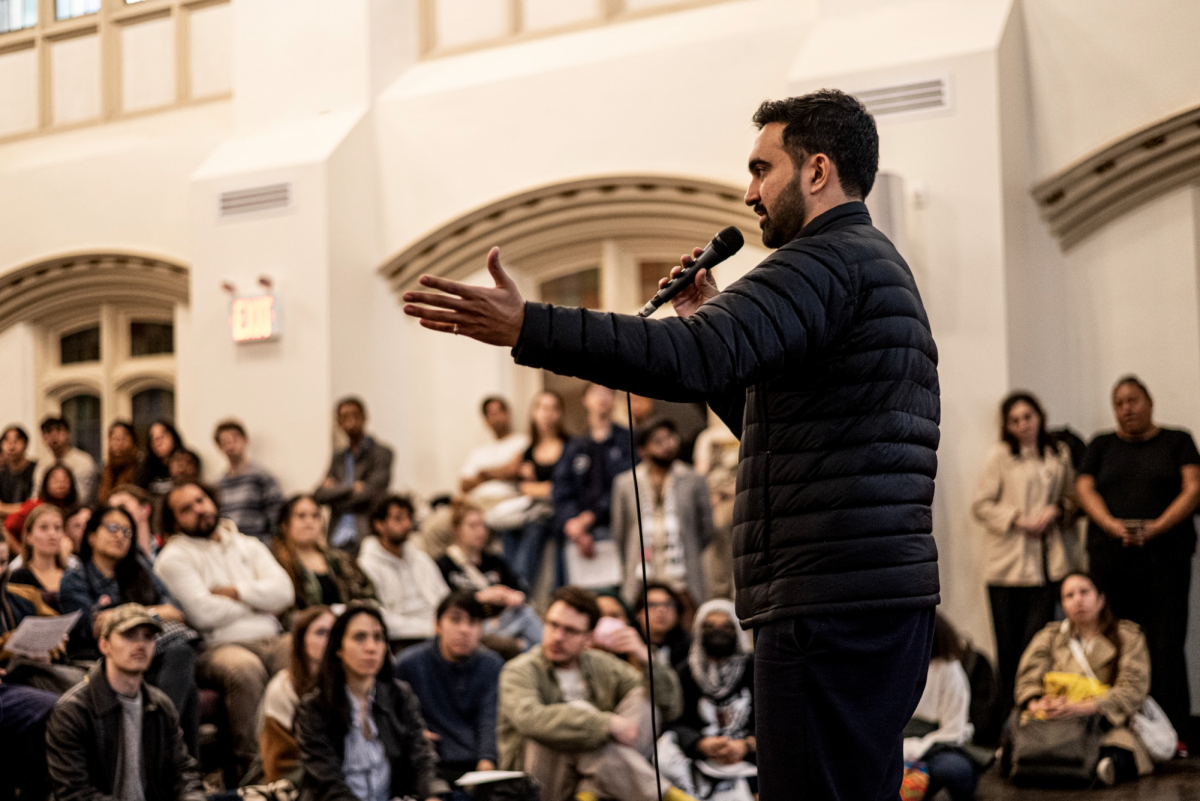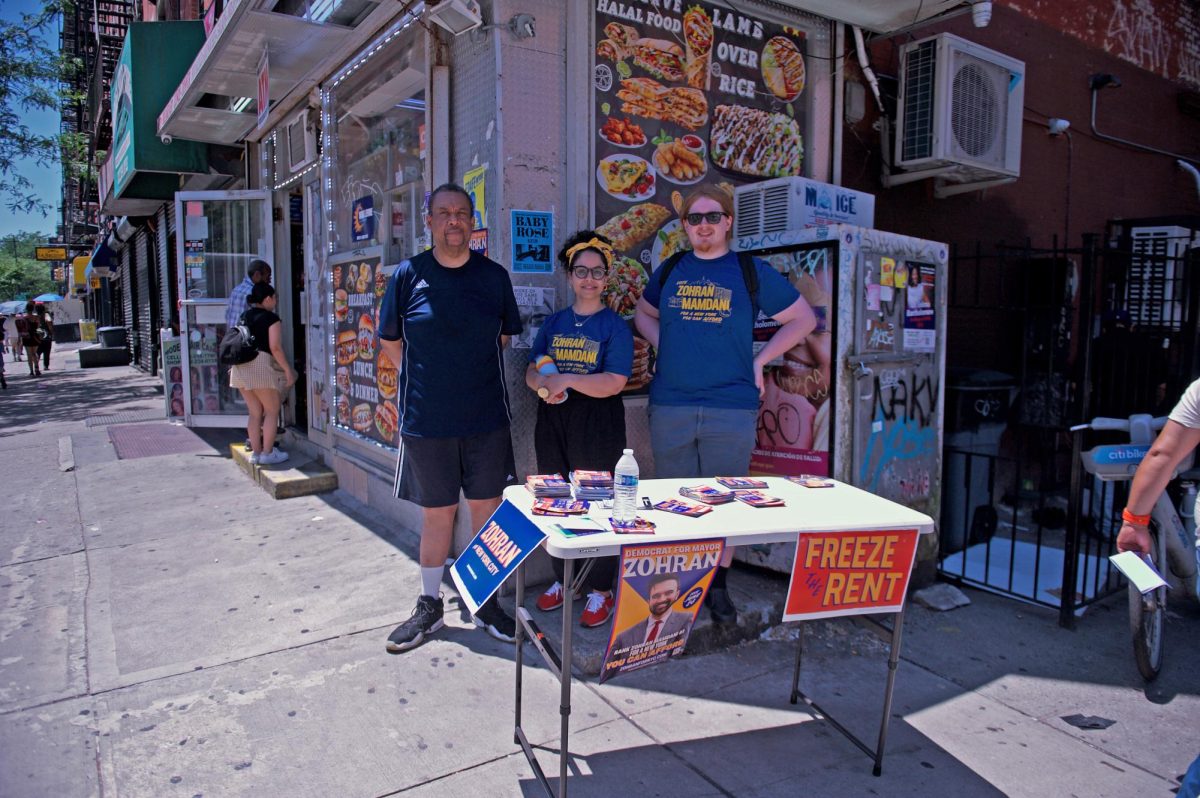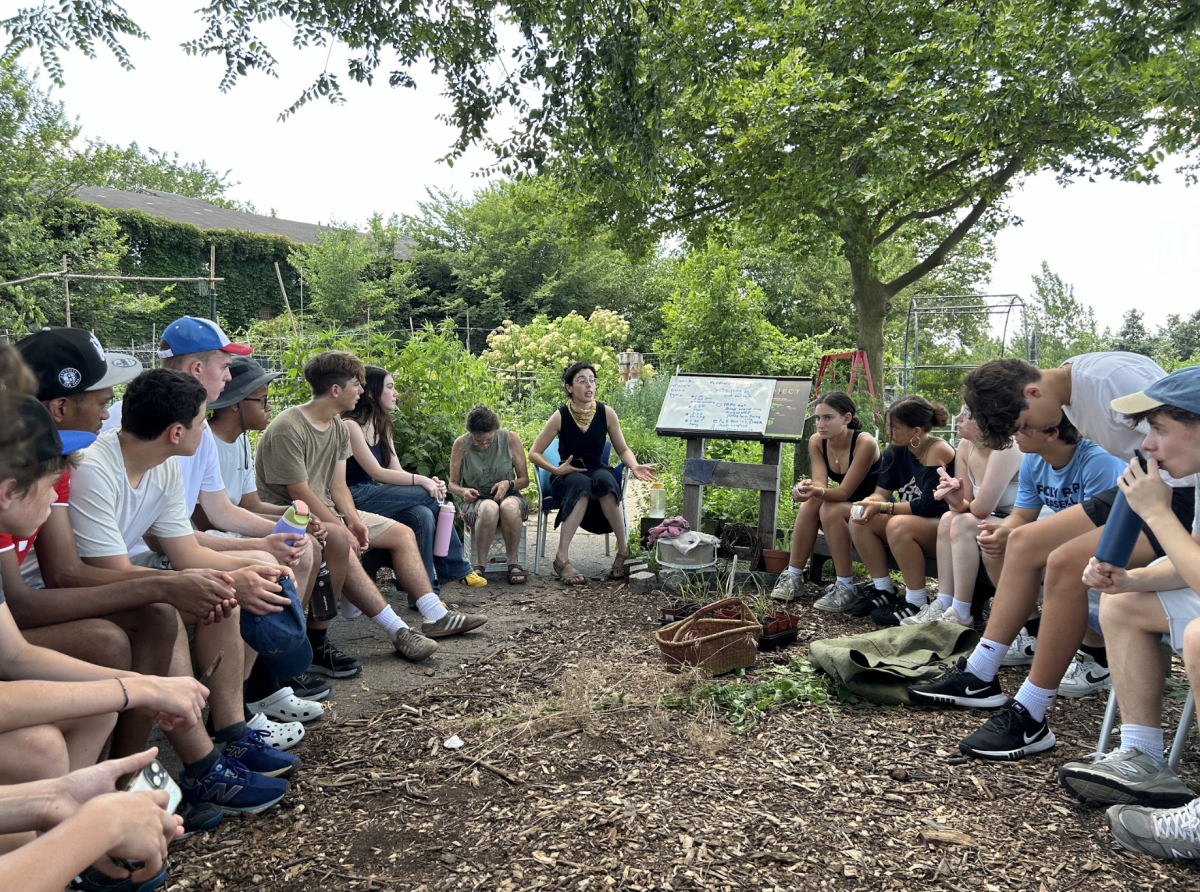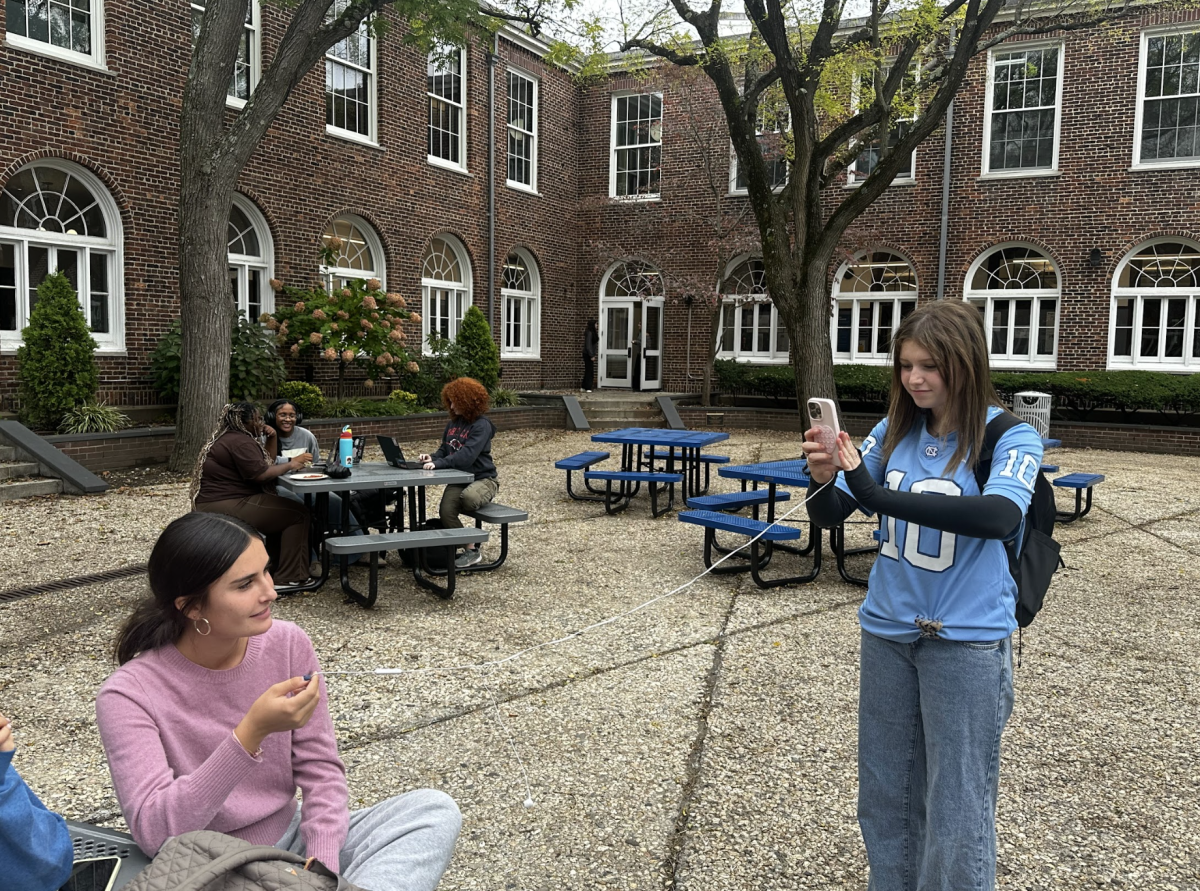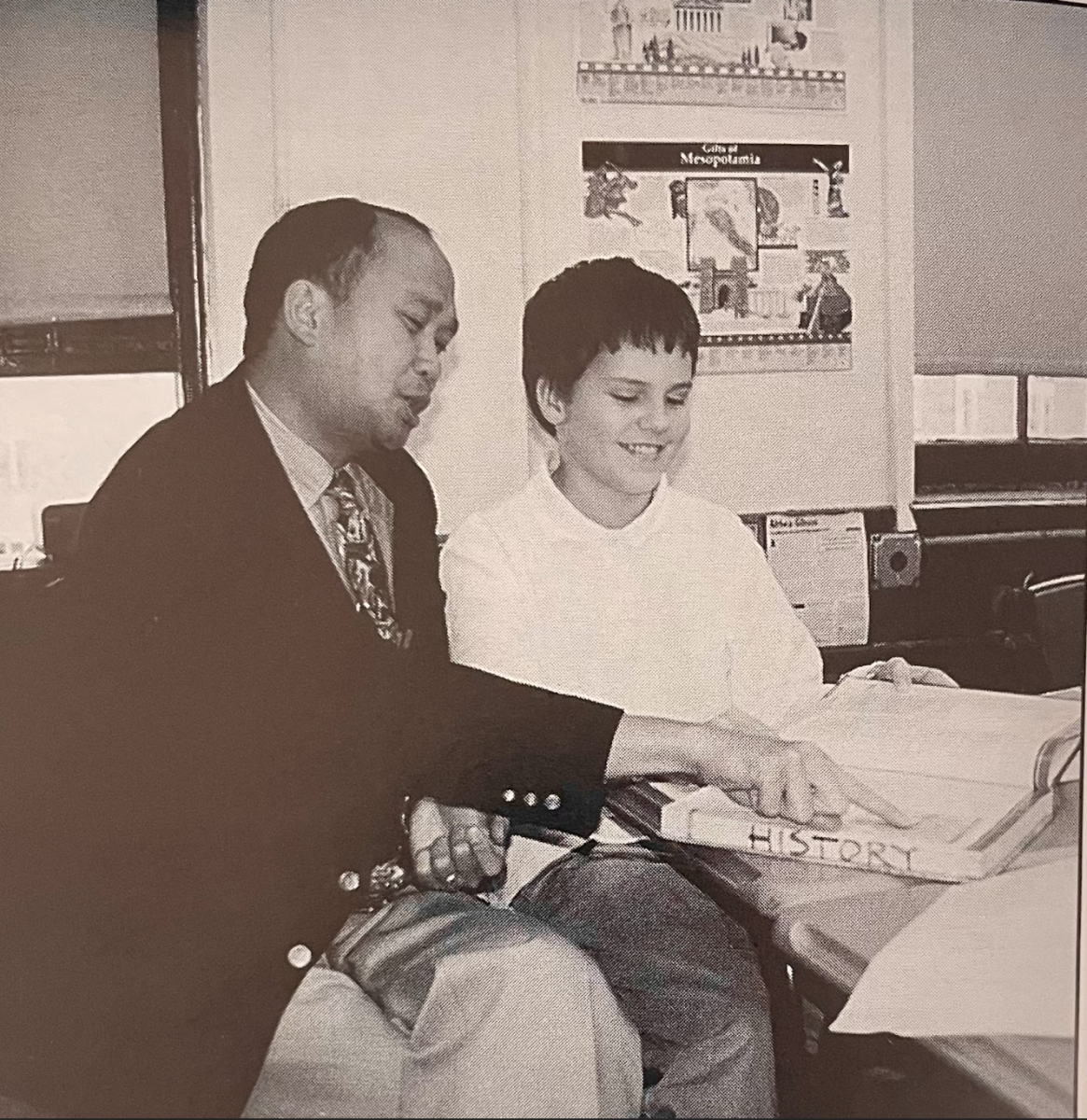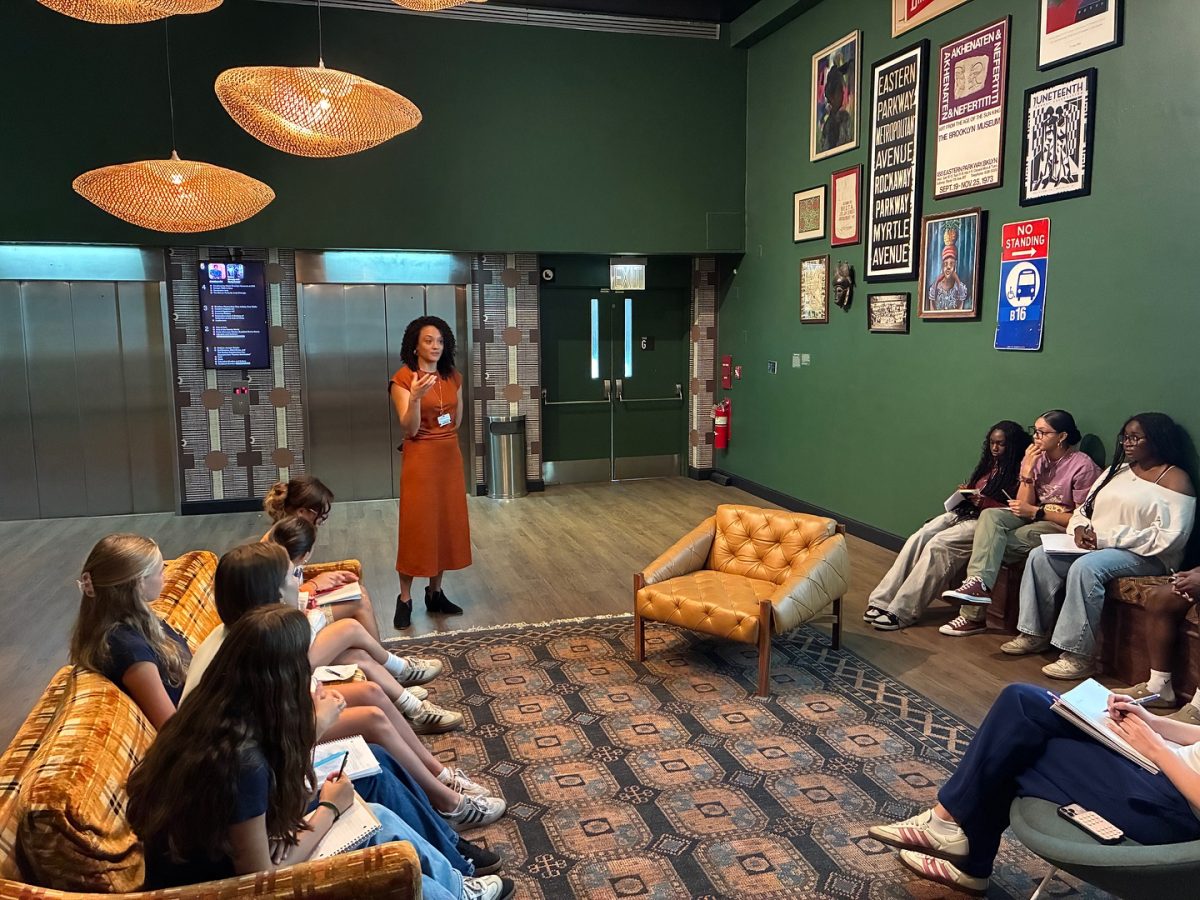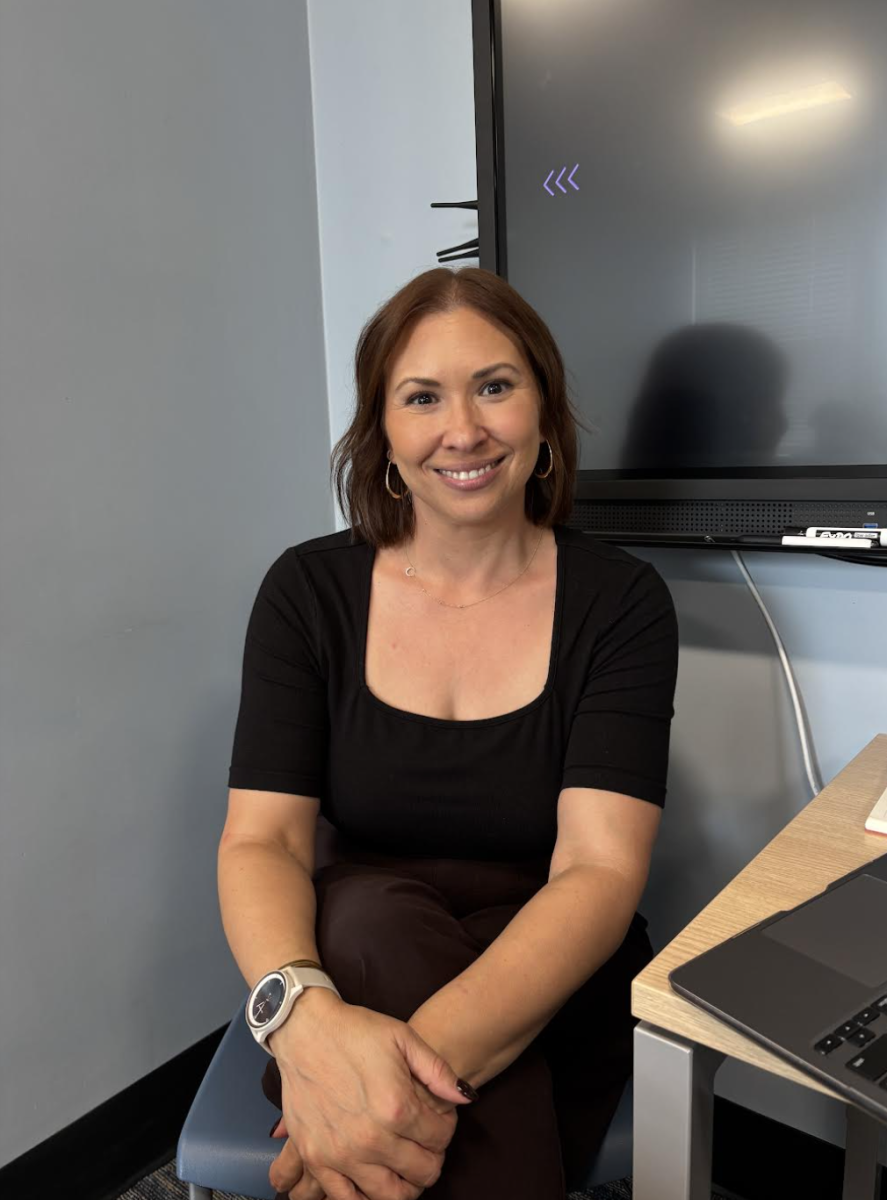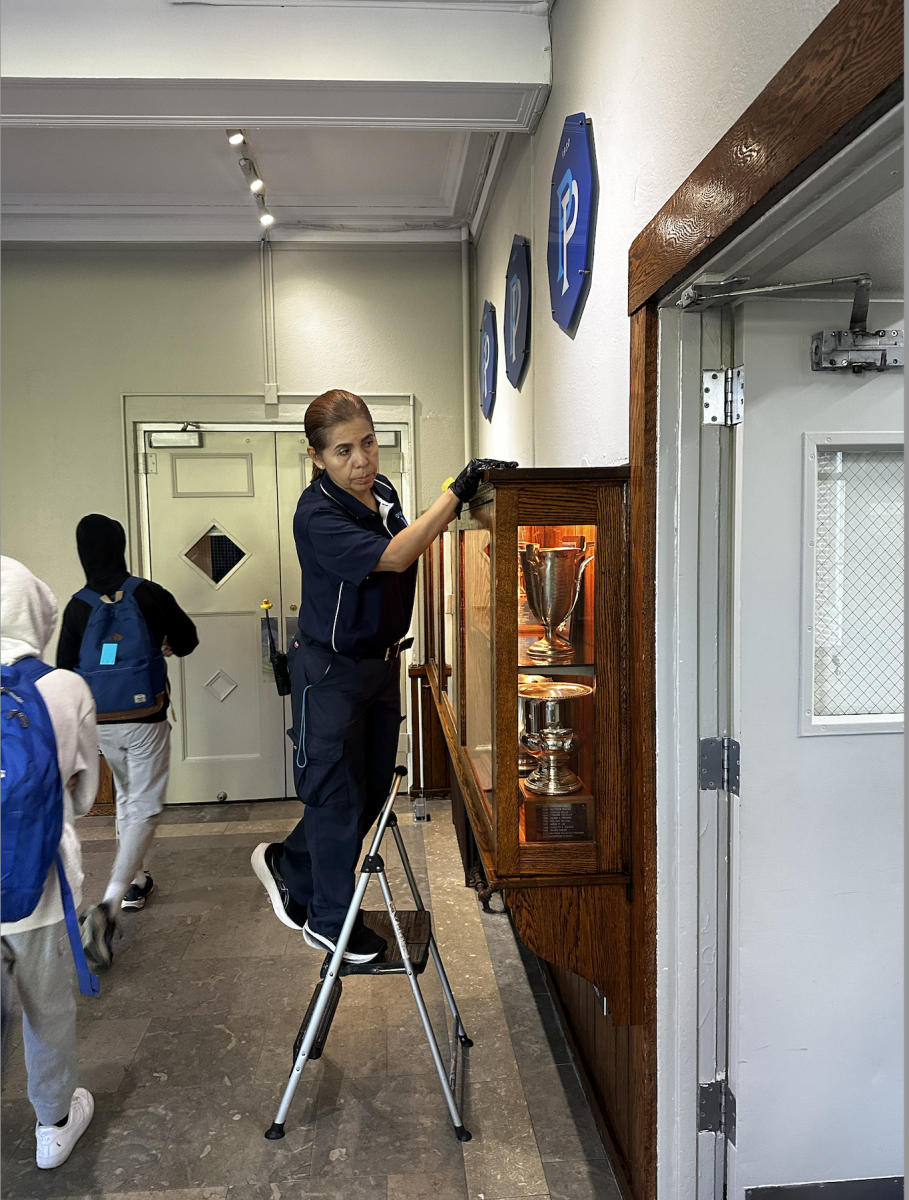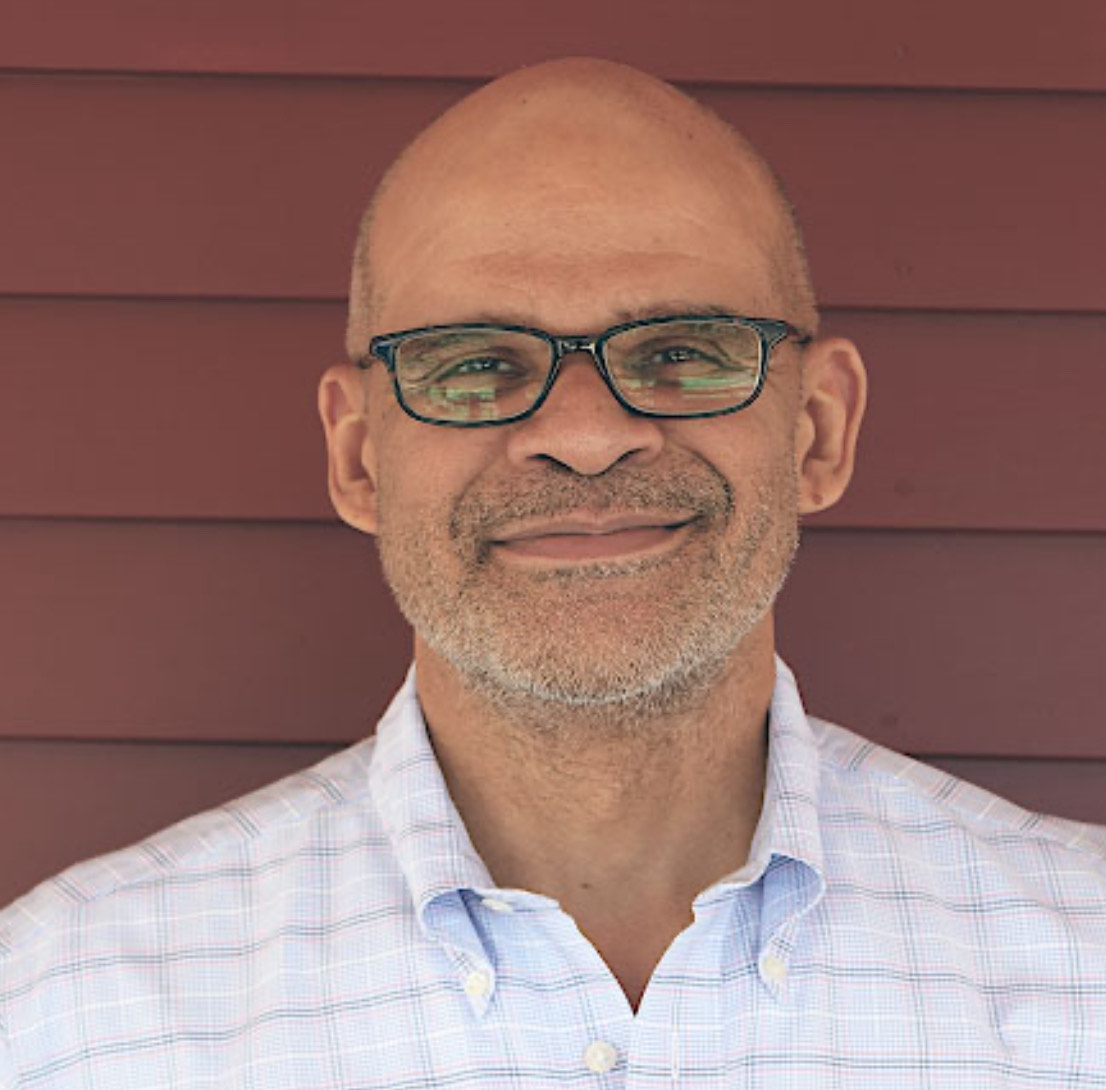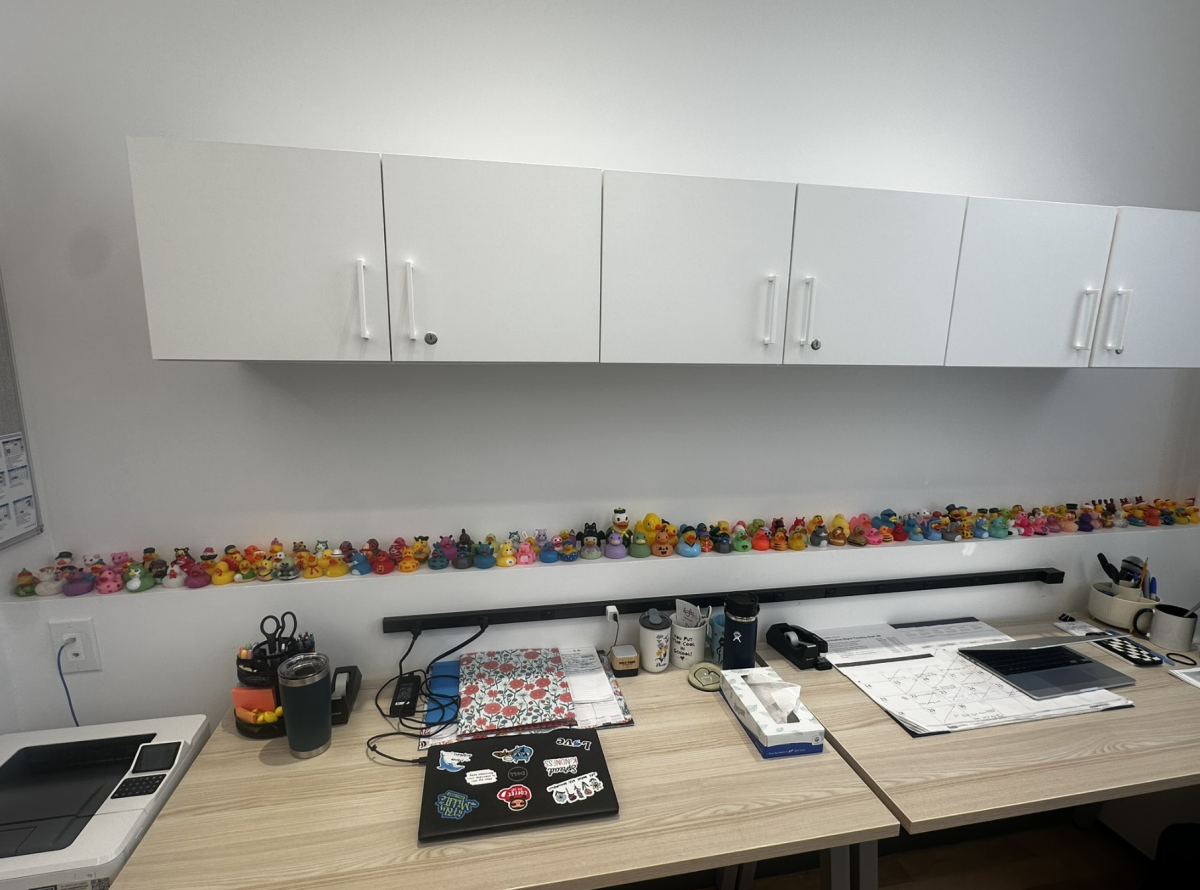As the 2024 presidential election draws closer, the topic of immigration continues to make headlines. The stories of many immigrants currently living in the U.S. — and some members of the Poly community, such as Francios Monroc, a Poly teacher — reflect present-day accounts of the American immigration system and its relationship with the American government.
Immigration: From Past to Present
For several centuries, immigrants were largely welcomed into the United States by citizens and policies alike. The U.S. Citizenship and Immigration Services website writes that “Americans encouraged relatively free and open immigration during the 18th and early 19th centuries, and rarely questioned that policy until the late 1800s.” Post Civil War, some states created immigration laws. In 1875, the Supreme Court made the “regulation of immigration a federal responsibility.” While more people began to immigrate to the United States in the 1880s, more laws had to be established to regulate immigration.
Gaudencio Andrade, Poly’s building engineer of the Dyker Heights campus, has been a member of the Poly community since 1992 and is an immigrant from Mexico. In an email reflecting on his experience becoming an American citizen, he wrote, “I think in general, the process of becoming a citizen has changed quite a bit. When I came to the U.S. in the 1980s, the wait time and process was quicker than it is today. But I understand that the U.S. now takes more time as there are more security measures in place than there were in the past.”
Today, immigration has proved to have many benefits for the American economy. According to Peter G. Peterson Foundation, a nonpartisan organization, “There were 31 million foreign-born workers in the United States in 2023, who made up 19 percent of the total workforce… The foreign-born population has a higher rate of labor force participation than the native-born population.”
A large focus of American immigration is at the Mexico-U.S. border. According to Pew Research Center, Mexico is the “top country of birth for U.S. immigrants… Roughly 10.6 million immigrants living in the U.S. were born there, making up 23% of all U.S. immigrants.”
Additionally, illegal immigration is a prominent topic among people currently living in the United States. According to the Migration Policy Institute, “The unauthorized population rose relatively steadily for decades until peaking at about 12 million in 2007-08.” The Pew Research Center furthers this by stating,“Among world regions, the number of unauthorized immigrants from Asia, Central America and sub-Saharan Africa rose between 2009 and 2014. The number from Mexico has steadily declined since 2007, the first year of the Great Recession, but Mexicans remain more than half (52%) of U.S. unauthorized immigrants.”
While illegal immigration has been recognized by the American government more recently, there has yet to be a significant decrease in unauthorized immigrants living in the United States. According to the American Immigration Council, “The number of asylum seekers seeking to enter each day is significantly higher than the number the United States can process at official border crossings. The location and manner of crossings varies widely across the border, often changing unpredictably based on misinformation, rumor, or the demands of powerful transnational criminal organizations.”
To combat the influx of undocumented migrants, laws have been erected to encourage organized entry into the U.S. at the border. The White House website wrote on June 4, 2024, that, “President Biden issued a proclamation under Immigration and Nationality Act… suspending entry of noncitizens who cross the Southern border into the United States unlawfully.” The statement notes that the law is temporary and is dependent on immigration population size at the border.
Both Donald Trump and Kamala Harris have reflected on immigration as part of their presidential campaigns. In a recent speech by Harris on August 23, 2024 on WBNS 10TV News, she said, “After decades in law enforcement, I know the importance of safety and security, especially at our border… As president, I will bring back the bipartisan board of security bill that he killed, and I will sign it back into law…We can create an earned passway to citizenship and secure our border.”
Trump also spoke on illegal immigration to Bloomberg Television on July 19, 2024, saying, “I will end the illegal immigration crisis by closing our border, and finishing our wall, most of which I have already built… we have to stop the invasion into our country that’s killing hundreds of thousands of people a year; we’re not going to let that happen.”
Inside A Poly Teacher’s Immigration Experience
Francis Monroc, one of Poly’s French teachers, had a positive experience immigrating to the United States. After growing up in France, Monroc said “I lived in the U.K. for ten years, so I think that experience helped me adapt to the U.S. The first few years were quite challenging. But because I got to live in another English speaking country, there were a lot of similarities in the lifestyle and the way of thinking.”
Monroc shared that he was “born and raised in the suburbs of Paris and moved to the United States in 2017.” Growing up, Monroc was familiar and accustomed to voting processes. Monroc said, “My parents — especially my mom — always educated me with the importance of voting. So from a very young age, I knew the importance of voting.”
Monroc continued that when he got engaged, he applied for an American visa and ultimately became an American citizen. With his wife already having been an American citizen, Monroc had further reason “to accomplish one of his dreams,” which, according to the Poly Prep website, “was to live in New York.” Monroc said he has been “a dual citizen [of France and the U.S.] since the end of last year.”
This is the first year Monroc is able to cast a vote for a presidential candidate as an American citizen. Monroc reflected on this milestone by saying, “I got to vote for some of the primaries and local elections that have been happening recently, but the Presidential election is going to be my first one. I’m pretty excited about it, it is a big deal.”
However, since Monroc moved to the United States, he found it hard to compare the inner-workings of elections in the U.S. to those in France. Monroc explained, “In France, presidential elections are based on the popular vote. But in America, that’s not the case. It’s based on big electors, and certain states that may be more important than others. It is still hard for me to follow that system.”
He also considers immigration “a big topic for the upcoming election, [since] you want to regulate the flow of immigration, [and] it’s hard to accommodate everybody. But at the same time, banning the possibility for people coming from certain countries to move to the U.S. [makes] the legal routes harder, it’s tough.”
Every immigrant across the world has a different experience. While Monroc felt “everything went really fast,” with his process of legally entering the United States, he also recognized people have unique experiences. “I don’t consider myself better or worthier than someone else. I also cannot deny that where I’m from plays to my advantage. There’s always the question of equity when it comes to where you are from… that’s going to be a tricky question that I am sure we are going to hear a lot more as we get closer to the election.”

